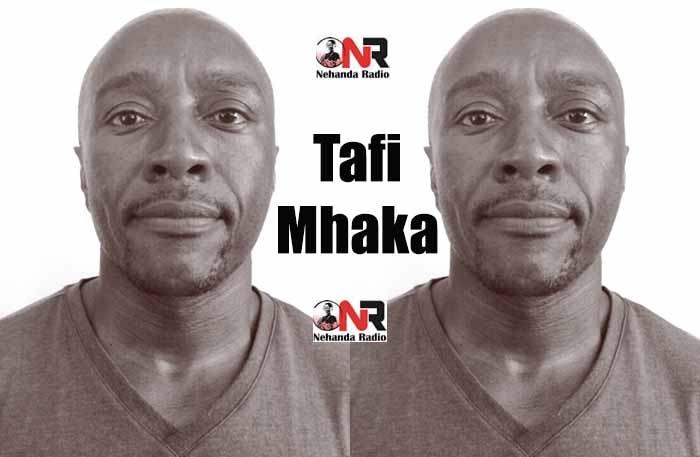By Tafi Mhaka
‘We have won the popular vote’. Moments after I had read MDC Alliance president Nelson Chamisa’s spirited tweet claiming victory in the July 31 2018 presidential elections, I smiled and contemplated the difficult but bittersweet journey that lay ahead.

Admittedly, I felt fairly embarrassed for questioning the arduous decision to contest an election designed to favour Zanu-PF’s presidential candidate.
And I felt tremendously faithless for not believing that Chamisa could defeat President Emmerson Mnangagwa. However, my election-induced euphoria didn’t last long into the day. An annoying trickle of frustrating results sucked the life out of the boundless energy Chamisa’s improbable victory had introduced into the August air.
As ZEC released the presidential results, all so slowly, a well-defined, hurtful and familiar web of organised defeat began to emerge. Later, I appeared on Al-Jazeera and predicted that Zanu-PF sympathisers would rig the presidential election results to help Mnangagwa capture a dubious win. The unfolding scenario, indeed, stank like the divisive 2002 and 2008 presidential elections.
So does the contentious aftermath of last year’s presidential election. Yesterday, as the strike by doctors went on unabated and prices of basic goods continually rose beyond the reach of underpaid workers, President Emmerson Mnangagwa was indulging Ugandan President Yoweri Museveni in Kampala.
Elsewhere, Defence and War Veterans Affairs Minister Oppah Muchinguri-Kashiri was leading SADC’s Observer Mission to Mozambique’s presidential, provincial and legislative elections. Yet, were the October 15 elections to be riddled with major flaws, marred by violence and hounded by legitimate objections from opposition parties, would Muchinguri-Kashiri be remotely qualified or liberally moved to compile an objective report on the polls?
Besides, what electoral insights could Mozambique possibly gain from an observer mission led by a Zanu-PF politburo member? How to fiddle vote counts in favour of the ruling party and quash post-election dissent? Zimbabwe, it must be stressed, has long failed to cover itself in electoral or human rights glory, but that hasn’t ever unsettled a blundering SADC – or a submissive religious community.
Yet, today, ‘amid dehumanising economic decline’, driven by a desperately incompetent president, ‘the church’ is calling for a 7-year suspension of elections. It, seemingly, wants to ‘reset’ Zimbabwean politics ‘in a non-competitive political environment’. Sorry, but is the church morphing into Zanu-PF’s celestial enabler and leading apologist?
To assume that Zimbabwe can deliberately “remove all political contestation from the land and focus the period on healing past wounds, recover the economy, and build a new political culture of cooperation focused on nation-building”, all without gaining political clarity and lawful accountability around past human rights transgressions and electoral fraud, is impractical.
Instead of praying that God will help secure justice for the men and women unfairly beaten, killed and raped by security forces since November 24 2017, that Zimbabwe will be liberated from Zanu-PF’s violent manipulation of state resources, that the people’s voice will always prevail in elections, the church wants to throw Mnangagwa a sanctified lifeline for hypothetical economic gain?
Suffice it to say, the international community will, under the right circumstances, aid Zimbabwe and trade with it. But to claim that an “environment of toxic political relations also renders our international re-engagement process futile, which international isolation inhibits investor confidence” is to absolve Zanu-PF from its singularly dominant role in perpetrating human rights abuses and poverty. Moreover, it is to shamefully deny that Zanu-PF has made Zimbabwe an international pariah.
That’s because it is incredibly hard to trust an administration that has repeatedly violated a well-publicised commitment to establish a clean break from the past. And it is indescribably problematic to do business with a party that won’t take full responsibility for its obvious failings.
The international community’s tangible distrust is merely a fittingly precise reflection of Zanu-PF’s redundant leadership style. Let’s be clear, Chamisa and the MDC Alliance certainly didn’t exert undue influence over ZEC, control a biased public media and direct a partisan security sector before and after the July 30 elections.
Indeed, they haven’t repeatedly restricted civil liberties, orchestrated abductions, sanctioned torture, banned demonstrations and ordered security forces to fire live bullets on unarmed, peaceful demonstrators, but Zanu-PF has.
Attempting to obfuscate Zanu-PF’s extensive culpability through a religiously themed declaration that targets the sentimental core of Zimbabwe’s Christian community is very unhelpful. Should it really want to assist and promote long-term economic transformation, the church must instead call on Mnangagwa to resign and insist that fresh, free, fair and transparent elections are held in the near future. That’s all Zimbabwe truly needs to start afresh.
Tafi Mhaka is a Johannesburg-based writer and commentator. His debut novel, Mutserendende: The African in Us, is scheduled for release in 2020. Follow him on @tafimhaka / tafi.mhaka






